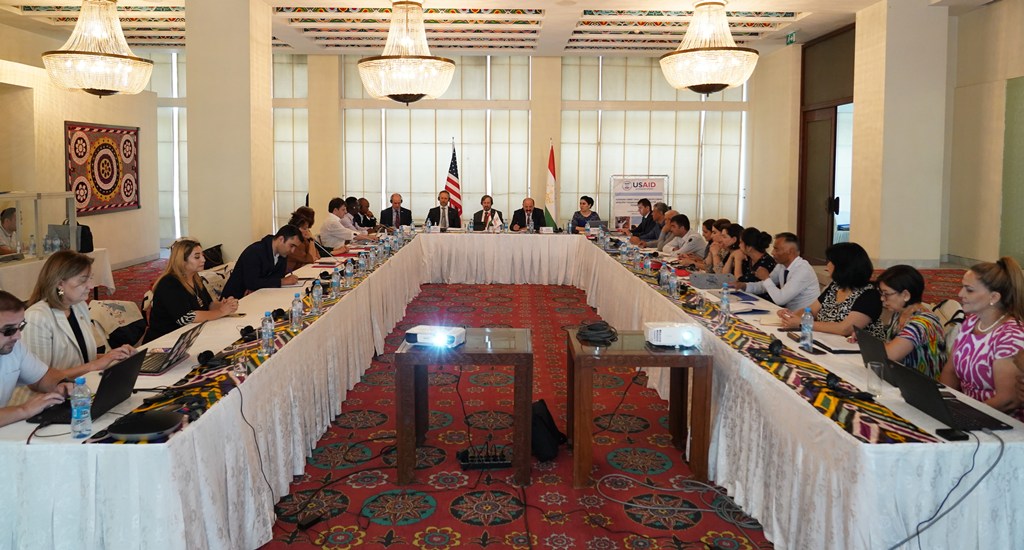Successful introduction of immunization against Covid-19 requires increase in the volume of cold-chain equipment for the safe storage of vaccines in medical facilities providing immunization services.
In response to a request of the Ministry of Health and Social Protection of the Population of Tajikistan (MoHSPP), the United States Agency for International Development (USAID) has supported has supported cold chain inventory activities in the country.
For the last time, such an inventory was carried out in Tajikistan in 2017 under support of the World Health Organization (WHO).
At the beginning of this year, the USAID supported activities on cold chain inventory and assessment of needs in 3,114 facilities, including vaccine storage warehouses of all levels, centers providing immunization in maternity houses and obstetric departments, family medicine centers, health centers of all levels, family medicine clinics, health houses and health points.
 ИЗОБРАЖЕНИЕ
ИЗОБРАЖЕНИЕ
A MoHSPP presented the results of the cold-chain inventory, carried out under support of the USAID, on June 3.
Recommendations developed on the basis of the results of the assessment will help make timely and accurate decisions on the forecasting and purchase of cold-chain equipment for safe storage of vaccines.
A cold chain is a series of climate-controlled transport and storage facilities that ensure the viability of testing reagents, medicines, vaccines, and blood products from factory to patient.
Medical refrigerators are used to store many health-care supplies: blood products, vaccines, medicine, and testing reagents. Each has a slightly different chilling requirement. Vaccines are sensitive to both heat and cold and so need to be kept between 2°C and 8°C from the point of manufacture to the point of use. In order to properly store blood and blood products, blood bank refrigerators need to keep internal temperatures between 2°C and 6°C all day, every day. Some vaccines need to stay frozen, so medical freezers must maintain internal temperatures between -15°C and -50°C.




